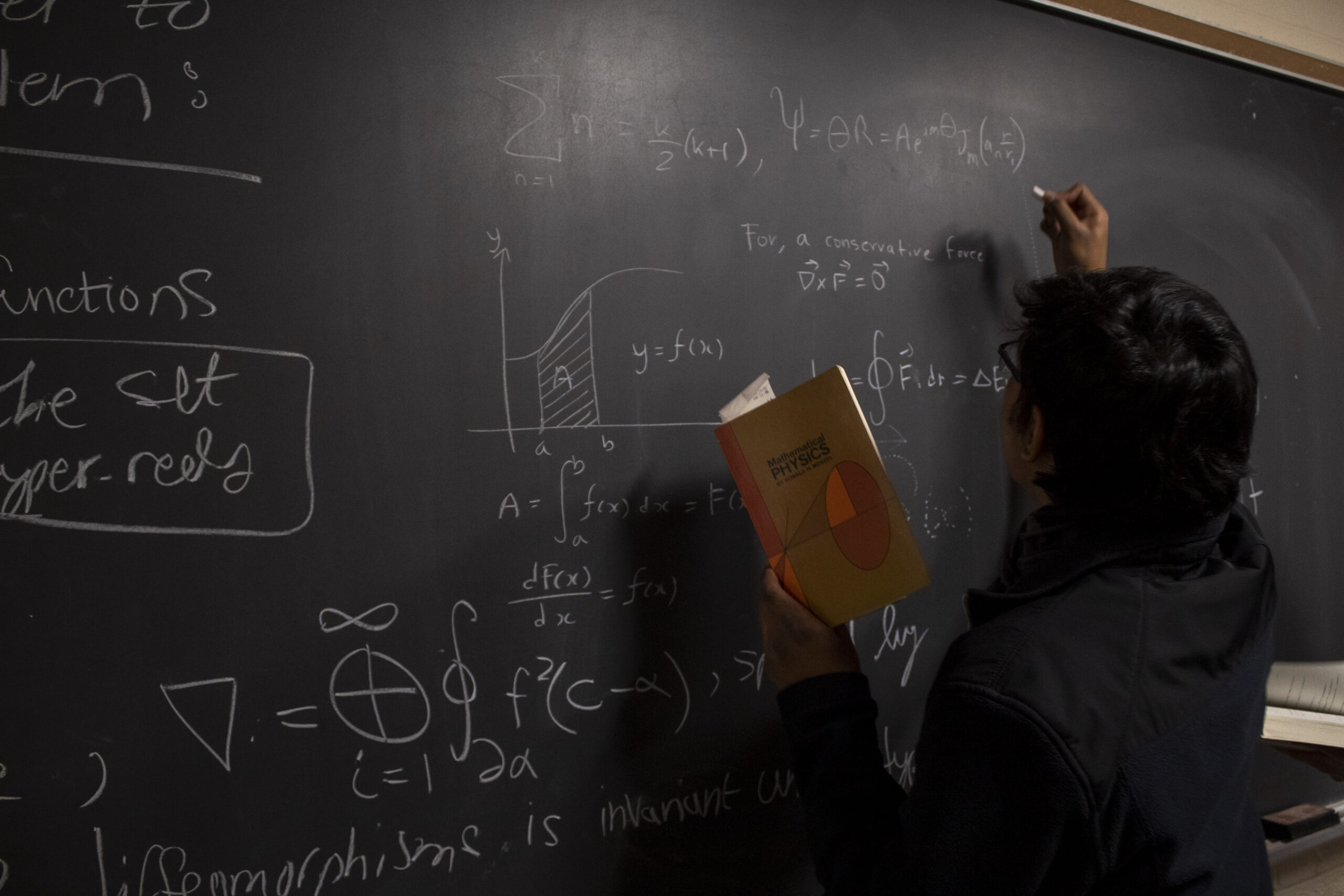
The Yale Quantum Institute, or YQI, is celebrating its 10-year anniversary as a research hub for faculty and students.
Founded in 2015, the institute brings together theorists and experimentalists studying quantum computing and quantum information science. As YQI enters its second decade, its leadership is planning for expansion, opening new quantum research labs and expanding outreach efforts.
“There’s still a long way to go,” said professor Steven Girvin, a theoretical physicist at Yale and a founding member of YQI, “but the work being done now is laying the foundation for what’s to come.”
One of YQI’s primary contributions has been in the development of superconducting transmon qubits, a key building block of many modern quantum computers used by IBM, Google and Amazon. A qubit, short for “quantum bit,” is a quantum computer’s basic unit of information. It works similarly to a regular computer’s bit, or zeroes and ones, but with the ability to exist in multiple states at once due to the principles of quantum mechanics.
The transmon qubit — first developed at Yale in 2007 by physicists Robert Schoelkopf, Michel Devoret, Steven Girvin and others — improved upon earlier designs by making qubits more stable, which is essential for building practical quantum computers.
“That is the foundation for many quantum computing systems pursued worldwide,” said professor Hong Tang, a faculty member at YQI.
In addition to developing quantum hardware, YQI researchers have worked on quantum error correction, a crucial area of study aimed at making quantum computers more reliable.
Unlike regular computers, which store information using stable bits set to either one or zero, the qubits used by quantum computers are highly sensitive to their environment. This sensitivity makes them prone to errors, as even the smallest disturbance — like tiny temperature changes or background noise — can cause them to lose information.
“In the last decade, the most important question in the field has been quantum error correction. The hardware is still at an extremely crude state,” said Girvin. “Crude means the hardware makes errors very frequently.”
Early attempts to fix these errors often made things worse, but recent advances suggest that error correction techniques are now starting to improve the stability of quantum systems, bringing practical quantum computing a step closer to reality.
Researchers hope that continued progress will allow quantum computers to surpass classical machines for complex computations.
“There’s still a long way to go,” Girvin said. “If we can [improve error correction] by a factor of 10,000 in the next 10 years, that would be good. If we can make it 10 million, that would be great.”
Collaborative environment
Beyond research, YQI is a space for faculty and students to collaborate.
The institute hosts weekly seminars, research discussions and events aimed at fostering interdisciplinary work. Girvin notes that many people carry the misconception that doing research is “isolating,” involving one person thinking hard alone, “but it’s really a social endeavor.”
According to Tang, YQI’s structure is designed to encourage collaboration.
He notes that experimentalists share labs, equipment and ideas in a way that is very “productive” and “intentional.” He credited the traditional Monday lunch seminar that Yale Quantum researchers have been holding for almost 25 years, where theorists and experimentalists come together and enjoy a pizza lunch while a weekly speaker gives a talk. Tang said faculty and students use these events to support each other and contribute to a welcoming social atmosphere at YQI’s seminar room.
As YQI enters its second decade, its leadership is planning for expansion. A new Physical Science and Engineering Building — PSEB — on Edwards Street is set to house quantum research labs. Tang described the project as a major milestone, noting that faculty will soon move into state-of-the-art facilities.
YQI also contributes to undergraduate quantum education at Yale.
Yale Undergraduate Quantum Computing, or YUQC, founded in 2020, connects students with research opportunities and offers courses on quantum computing fundamentals.
“YUQC [offers] a streamlined way for undergraduates to experience and interact with the level of research at Yale,” said Mason Abrell ’26, the club’s co-president.
The group organizes semester-long projects, including studies on quantum cryptography, error correction and chemistry simulations. It also runs Q Basics, an introductory program aimed at preparing students to work in research labs.
Many YUQC members go on to work in YQI-affiliated labs.
“That’s why I ended up reaching out and getting accepted by Hong Tang’s lab,” Abrell shared. “It was because of the skills I developed in YUQC during my freshman and sophomore years.”
Public engagement and future directions
YQI has expanded its outreach efforts in recent years, supporting undergraduate hackathons, funding trips to research conferences and hosting a Quantum artist-in-residence program that features artwork inspired by quantum science.
“One of my favorite things is the artist-in-residence program,” remarked Abrell.
He shared his fascination with seeing quantum concepts translated into art, such as sketches of dilution refrigerators, a major component of quantum systems.
Looking onto the next decade, YQI researchers acknowledged the challenges the field faces.
Girvin noted that while quantum technology is advancing, widespread applications remain uncertain. When asked about the timeline for quantum computing becoming economically useful, he said that he has taken a position of saying “10 years from today — and I’m going to keep saying that until I’m wrong.”
As YQI moves into its next decade, the institute continues to expand its work on refining quantum computing technology while turning its gaze toward deeper public engagement.
YQI’s offices are currently located at 17 Hillhouse Ave.